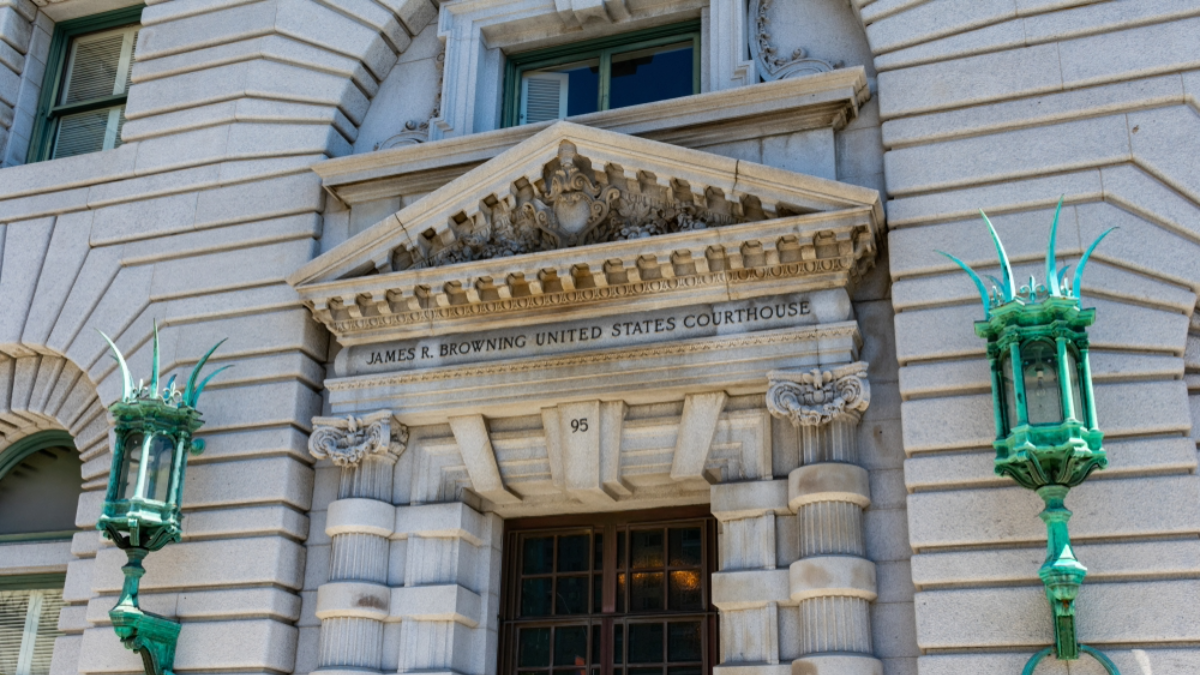Federal Appeals Court Narrows Injunction of California Age-Appropriate Design Code
Justin Hendrix / Aug 16, 2024
San Francisco, CA: The United States Court of Appeals for the Ninth Circuit located in James R. Browning US Court of Appeals Building. Shutterstock
The Ninth Circuit Court of Appeals has issued a ruling in NetChoice v. Bonta, partially upholding and partially vacating a preliminary injunction against California's Age-Appropriate Design Code Act (CAADCA). The court affirmed that certain provisions of the law are likely to violate the First Amendment by compelling online businesses to assess and mitigate potential harms to children, but it vacated the broader injunction, remanding the case to the district court for further consideration of other parts of the statute, including restrictions on the collection and use of children's data. This decision is a notable development in the ongoing legal battle over child online safety, privacy, and free expression.
On September 20, 2022, California Governor Gavin Newsom signed into law AB-2273, the CAADCA. In December 2022, the trade association NetChoice filed suit against California Attorney General Robert Bonta, arguing that the CAADCA violates the First and Fourth Amendments, the Dormant Commerce Clause, and the Due Process Clause, and that the law is too vague.
In September 2023, US District Court for the Northern District of California Judge Beth L. Freeman granted a preliminary injunction in favor of NetChoice on the grounds that the Act violates the First Amendment.
RELATED READING
- Reviewing Amicus Briefs Filed in Appeal of California Age Appropriate Design Code Act Injunction
- The California Age Appropriate Design Code Act May Be the Most Important Piece of Tech Legislation You’ve Never Heard Of
- Evaluating the Argument Over the California Age Appropriate Design Code Act
- Constitutionality of California’s Child Online Safety Law Disputed in Court of Appeals
In its ruling, the Ninth Circuit affirmed that NetChoice is likely to succeed in its claim that the CAADCA requirement for businesses to "opine on and mitigate the risk that children may be exposed to harmful or potentially harmful materials online facially violates the First Amendment." The court held that this requirement imposes a substantial burden on free speech by compelling businesses to engage in subjective assessments of content they host. Specifically, the court emphasized that the law's Data Protection Impact Assessment (DPIA) requirement "compels speech by requiring covered businesses to opine on potential harm to children" and is thus subject to strict scrutiny under the First Amendment, which the court says it is likely to fail. The court says the DPIA requirement "deputizes covered businesses into serving as censors for the State."
But the court vacated parts of the district court's preliminary injunction that enjoined the entire CAADCA, suggesting Netchoice's broad facial challenge strategy may have been overreaching for some parts of the law. The ruling notes that the district court failed to properly evaluate whether other provisions of the CAADCA independently violated the First Amendment or whether they could be severed from the unconstitutional portions. The court found that it was "too early to determine whether the unconstitutional provisions of the CAADCA were likely severable from its valid remainder" and remanded the case for further proceedings on these issues.
The district court will re-evaluate the remaining provisions of the CAADCA under the framework provided by the Ninth Circuit opinion. The district court must determine whether these provisions can stand independently without the DPIA requirements, and whether NetChoice is likely to succeed on its claims against these other provisions.
NetChoice, whose members include some of the biggest technology firms in the world, hailed the ruling. “The Ninth Circuit’s ruling is a victory for free expression, online security and Californian families,” said Chris Marchese, Director of the NetChoice Litigation Center in a press statement. “The court recognized that California’s government cannot commandeer private businesses to censor lawful content online or to restrict access to it.”
But California officials took a different view in a statement issued late in the day.
"California enacted this nation-leading law to shield kids from predatory practices. Instead of adopting these commonsense protections, NetChoice chose to sue — yet today, the Court largely sided with us," Governor Newsom said in the statement. "It's time for NetChoice to drop this reckless lawsuit and support safeguards that protect our kids’ safety and privacy."
“We’re pleased that the Ninth Circuit reversed the majority of the district court’s injunction, which blocked California’s Age-Appropriate Design Code Act from going into effect,” said Attorney General Bonta.
Likewise, a proponent of child online safety regulation, Meetali Jain, Executive Director of the Tech Justice Law Project (TJLP), also welcomed the ruling. "In vacating much of the district court's injunction of the CAADCA, the Ninth Circuit has signaled that judicial scrutiny of tech regulation needs to be far more nuanced." Jain noted the possibility that the main parts of California’s Age-Appropriate Design Code could still be found constitutional allows for the potential development of significant online safety protections for children in California and beyond.
"The Ninth Circuit made it clear that the district court did not properly analyze the safety-by-design and privacy-by-default protections at the heart of this bill, and the Court’s reasoning offers hope for policies that address harmful and addictive features such as dark patterns, infinite scrolls and streaks head-on,” said Jain.
This piece was updated to include statements from California's Governor and Attorney General.
Authors
